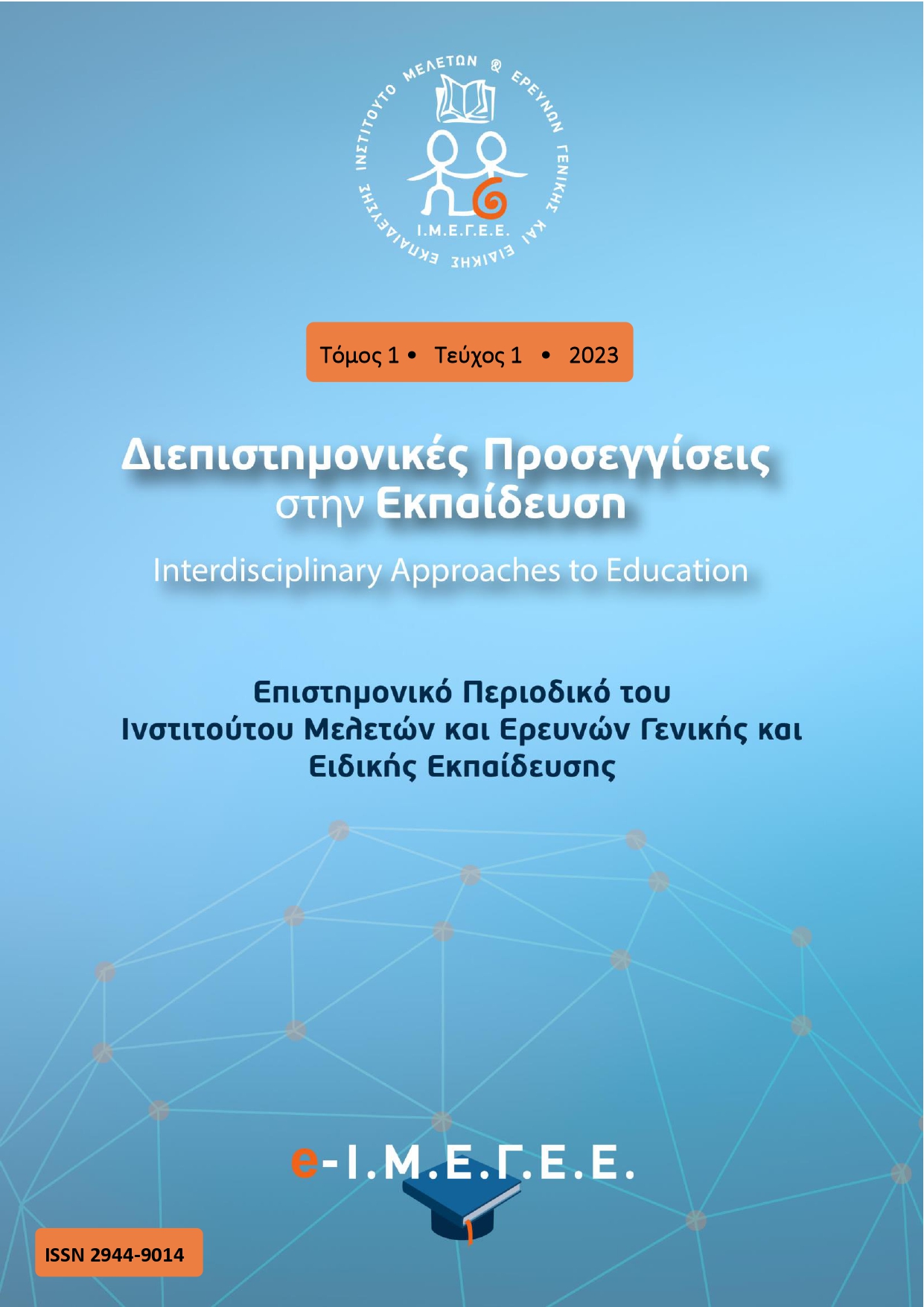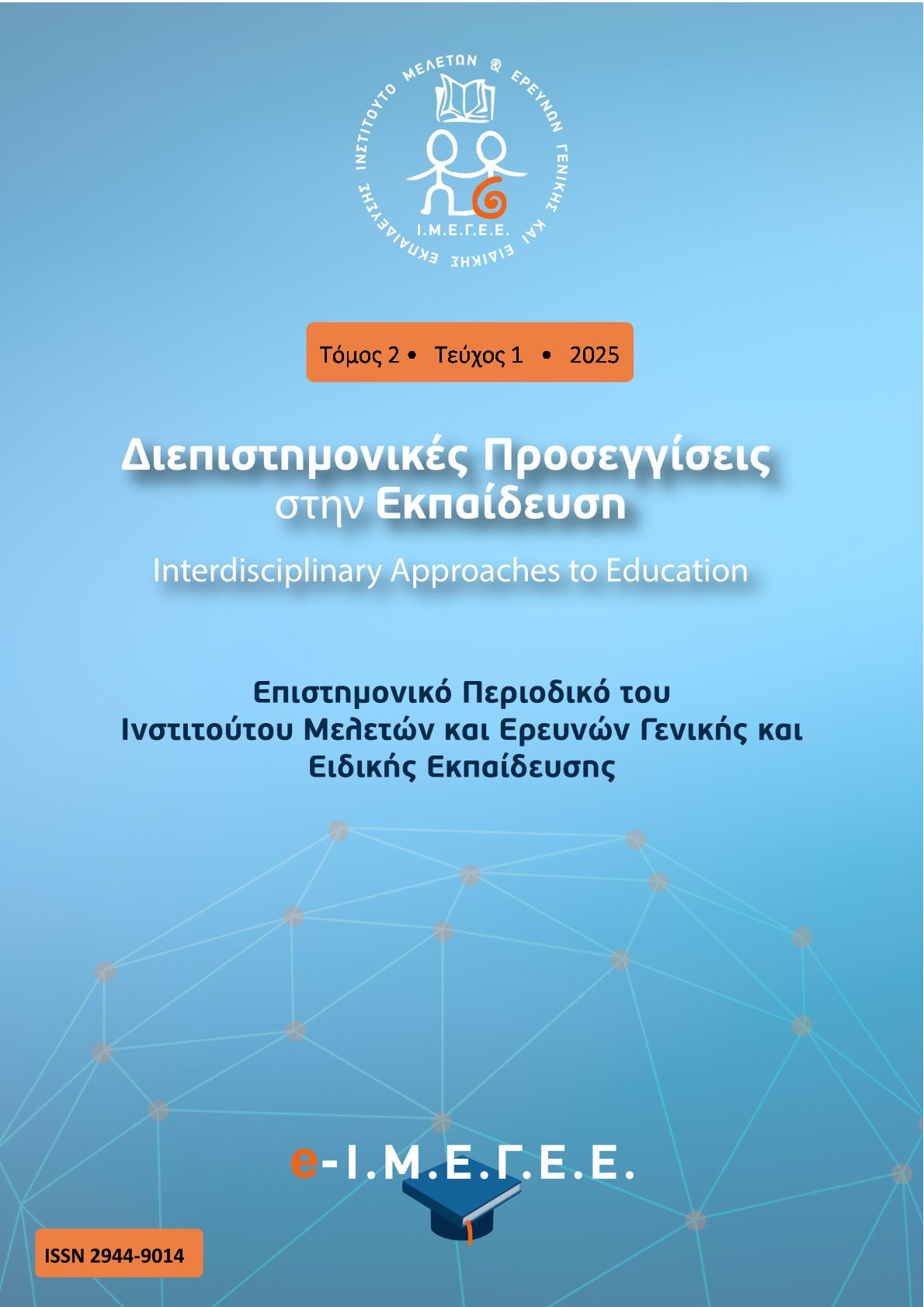The assessment of written expression to pupils with Special Educational Needs

Abstract
Research has shown that pupils with Special Educational Needs have particular difficulties and significant problems in their writing skills on basic levels of the writing and cognitive processes of the intervention at the meaning. This study aimed to identify the difficulties and the problems of pupils in the last three grades of primary school with Special Educational Needs in writing and to contribute new data, combining quantitative assessment methods and quality analysis processes. The study’s research aimed to assess specific production skills of written narratives, which has shown by research that pupils with Special Educational Needs show weak and poor performance. For this purpose, 18 pupils of the last three grades of the primary school wrote two narrative texts, one with a technique of unfinished phrases and one with images. These pupils attend two public schools in the same space in the city of Athens, supported either in the integration classroom or with parallel support in the class. We assess the pupil’s text with a score of total content. Also, we evaluate individual criteria related to text structure, productivity, and spelling. The pupil’s text evaluation at the word level, sentence level, paragraph level, text structure, and content show gradations in the ability of written expression. These gradations depend on the test type, the evaluation criterion, and pupil difficulty, and they provide information on their cognitive processes and individual needs. The results show lower performance on all evaluation criteria in pupils with complex disabilities. In addition, there are more difficulties at basic writing levels in pupils with Special Learning Disabilities compared to High-Functioning Autism and Attention Deficit Hypertension Disorder. Based on these findings, the work discusses the factors that influence the different performances of pupils in written expression related to limitations and deficits in linguistic skills and cognitive mechanisms.
Article Details
- How to Cite
-
ΞΑΝΘΗ Σ. Β. (2023). The assessment of written expression to pupils with Special Educational Needs. Interdisciplinary Approaches to Education, 1(1). https://doi.org/10.12681/.31203
- Section
- Articles
Ενημέρωση για τα πνευματικά δικαιώματα
Οι συγγραφείς των άρθρων που δημοσιεύονται στο περιοδικό διατηρούν τα δικαιώματα πνευματικής ιδιοκτησίας επί των άρθρων τους, δίνοντας στο περιοδικό το δικαίωμα της πρώτης δημοσίευσης. Άρθρα που δημοσιεύονται στο περιοδικό διατίθενται με άδεια Creative Commons 4.0 και σύμφωνα με την άδεια μπορούν να χρησιμοποιούνται ελεύθερα, με αναφορά στο/στη συγγραφέα και στην πρώτη δημοσίευση για μη κερδοσκοπικούς σκοπούς και με δικαίωμα τροποποίησης μόνον με παρόμοια διανομή (αν αναμείξετε, τροποποιήσετε, ή δημιουργήσετε πάνω στο υλικό, πρέπει να διανείμετε τις δικές σας συνεισφορές υπό την ίδια άδεια όπως και το πρωτότυπο).
Απαγορεύεται η αντιγραφή, αποθήκευση και διανομή της παρούσας εργασίας, εξ’ολοκλήρου ή τμήματος αυτής, για εμπορικό σκοπό. Επιτρέπεται η ανατύπωση, αποθήκευση και διανομή για σκοπό µη κερδοσκοπικό, εκπαιδευτικής ή ερευνητικής φύσης, υπό την προϋπόθεση να αναφέρεται η πηγή προέλευσης και να διατηρείται το παρόν µήνυµα. Ερωτήματα που αφορούν τη χρήση της εργασίας για κερδοσκοπικό σκοπό πρέπει να απευθύνονται προς τους συγγραφεα-είς. Οι απόψεις και τα συμπεράσματα που περιέχονται σε αυτό το έγγραφο εκφράζουν το-ους συγγραφέα-είς και δεν πρέπει να ερμηνευθεί ότι αντιπροσωπεύουν τις επίσηµες θέσεις του Ινστιτούτου Μελετών και Eρευνών Γενικής και Ειδικής Εκπαίδευσης (Ι.Μ.Ε.Γ.Ε.Ε.).
Copyright notice
Authors retain copyright and grant the journal right of first publication with the work simultaneously licensed under a Creative Commons Attribution NonCommercial License that allows others to share the work with an acknowledgement of the work's authorship and initial publication in this journal.



